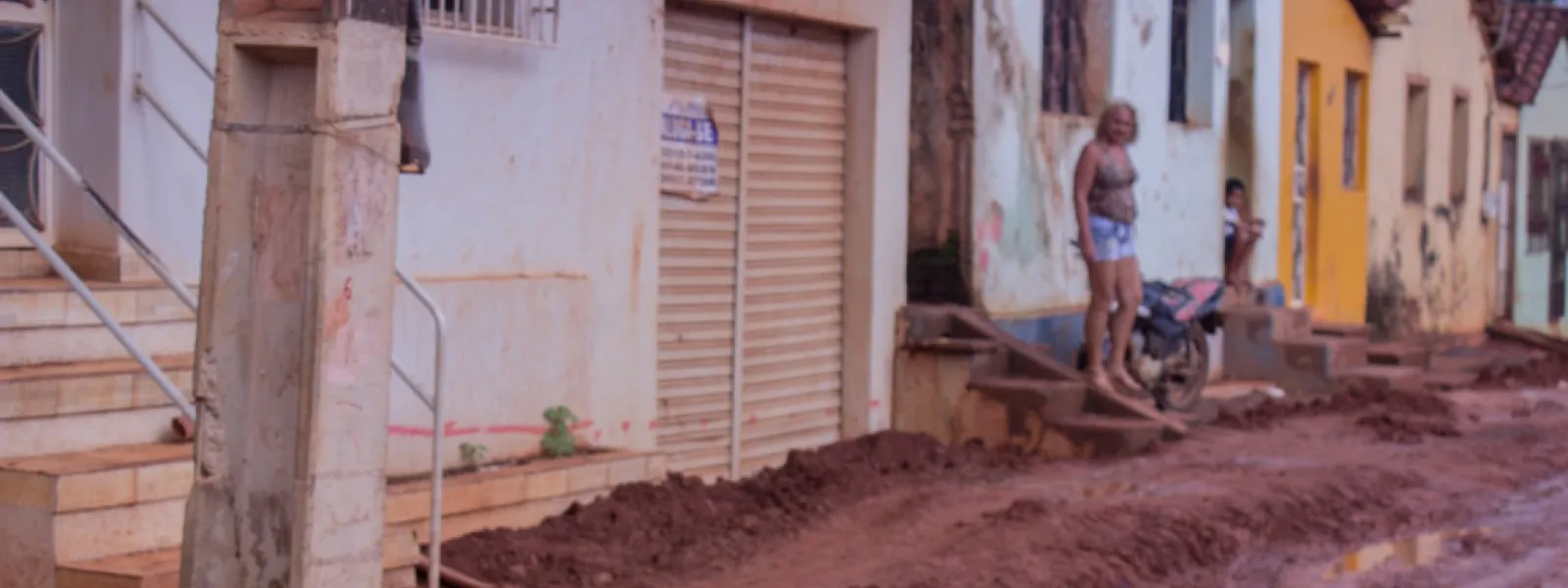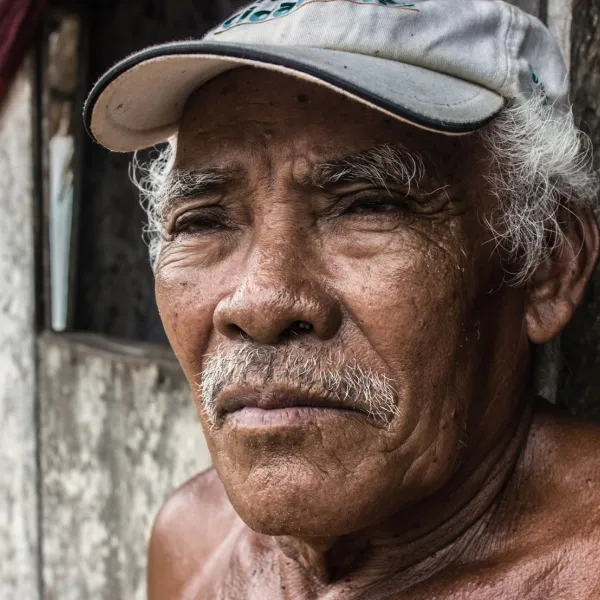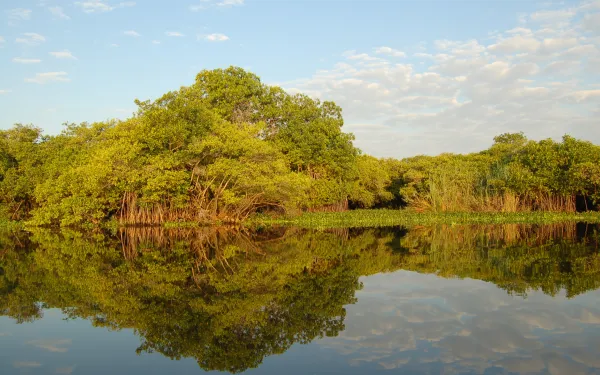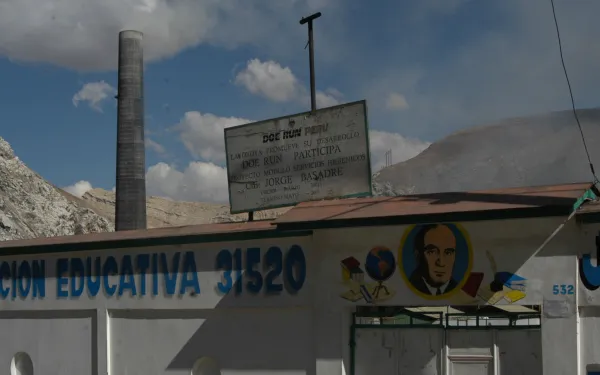
Project
Photo: Maíra Irigaray / Amazon WatchHolding Brazil accountable for the Belo Monte Dam
When fully operational, Belo Monte will be the third-largest dam in the world, constructed in one of the most important ecosystems on the planet: the Amazon rainforest. It sits on the Xingu River in Pará, a state in northern Brazil. The reservoir will cover 500 square kilometers of forest and farmland—an area the size of Chicago.
For the people of the Xingu, construction of Belo Monte has meant loss of access to water, food, housing, work and transportation. At least 20,000 people have been displaced.
The government and construction consortium began to construct the dam without first consulting the people of the region, many of whom are indigenous. They flouted international human rights law, which requires the free, prior and informed consent of affected indigenous communities. Brazil also failed to comply with precautionary measures issued by the Inter-American Human Rights Commission, which were intended to protect the life, health, and integrity of local communities.
Though Belo Monte began operations in May 2016, it is not yet operating at full capacity. In April 2016, a federal court suspended the dam's operating license because the consortium in charge did not complete basic sanitation works in Altamira, the city nearest to and most affected by the dam.
Partners:

Related projects

Six Colombian Wetlands of Global Importance
Colombia is blessed with sweeping mountaintops, rich jungles, and rivers that curve through the heart of it all. The country has three mountain chains, fertile volcanic soils, half of the world’s páramos (high-altitude wetlands), an equatorial climate with constant high temperatures, the Amazon forest, and the waters of the Caribbean Sea and Pacific Ocean. Colombia is first in the world in diversity of birds and orchids, second in plants and amphibians, third in reptiles and palms, and fourth in mammals. To this I would add a long and diverse et cetera. Colombia’s environmental heritage includes six Wetlands of International Importance listed under the Ramsar Convention, a treaty that protects these environments. Their listing indicates their value not only for Colombia, but also for humanity. Where are they? Why are they important? What dangers do they face? 1. Ciénaga Grande de Santa Marta, Magdalena River Delta Estuary System. In the department of Magdalena, the Ciénaga Grande de Santa Marta is Colombia’s largest wetland lagoon. Here the fresh water of the Magdalena River mixes with the salty waters of the Caribbean Sea. It’s a refuge for both migratory and endemic birds. It’s in danger due to infrastructure projects including 27 kilometers of dikes, the burning and clearing of plant life, and drought. AIDA has worked with two Colombia universities to advocate for the protection of the Ciénaga before the Ramsar Secretriat. 2. Chingaza Wetlands System. The Chingaza system of lagoons and páramos hosts many species of endangered plants and animals, such as the spectacled bear and the frailejón, a succulent shrub in the sunflower family. It also serves as a refuge for migratory birds. According to the Humboldt Institute, the Chingaza páramo provides 80 percent of Bogotá’s drinking water. At AIDA, we advocate for the protection of the páramos, unique ecosystems that cover just 1.7 percent of Colombia’s continental territory but provide more than 70 percent of the nation’s drinking water. 3. Otún Lagoon Wetlands Complex. The Otún Lagoon Complex in Los Nevados National Park, in the Central Cordillera of the Colombian Andes, includes interconnected lakes, bogs, marshes, glaciers, and páramos. The area supports 52 species of birds, many of them endangered. The livestock industry, litter, forest fires, invasive species, and illegal tourism activities all threaten the area. 4. Baudó River Delta. Originating in the Serranía del Baudó, the Baudó River runs 180 kilometers through the department of Chocó and empties into the Pacific Ocean. A relatively short river, the Baudó swells from the region’s abundant rains and flows powerfully into the Pacific. The river delta’s main threats include indiscriminate mangrove removal and overfishing. 5. Estrella Fluvial del Inírida Wetlands Complex. This complex of wetlands occupies a transition zone between the Orinoco and Amazon regions, close to the sacred indigenous site of Cerro de Mavicure. According to the Ministry of Environment, the area is home to 903 species of plants, 200 species of mammals, and 40 species of amphibians. Critically endangered species, including otters, jaguars, and pink dolphins, struggle to survive there. These wetlands face threats from the illegal mining of coltan and gold, and the accompanying mercury discharge. The buffer zone also suffers from cultivation of drug crops, the livestock industry, and deforestation. 6. La Cocha Lagoon. In the indigenous language of Quechua, cocha means lagoon. In the Department of Nariño, 2,800 meters above sea level, sits Colombia’s second-largest lagoon. On its banks live fishermen, farmers, and descendants of the indigenous Quillacinga people. Tourists come to spot unique plant and animal species on the small island of La Corota. The livestock industry, intensive agriculture, deforestation, and erosion threaten the lagoon. Valuable Characteristics The Ramsar Convention protects these sites because of their fundamental role in both regulating water cycles and providing habitat for unique plants and animals, particularly aquatic birds. Ramsar also recognizes the wetlands as important sources of fresh water, which recharge aquifers. They even mitigate climate change. The Convention calls worldwide attention to these wetlands, which have “great economic, cultural, scientific and recreational value, whose loss would be irreparable.” Despite their tremendous value, Colombia’s wetlands face a growing number of threats: overexploitation, water loss, burning, deforestation, toxic contamination, large-scale mining, large-scale agriculture, roads that disrupt the natural water cycle, and climate change, among others. In recent years, they’ve been featured in some of Colombia’s most emblematic films, including El Abrazo de la Serpiente (Estrella Fluvial del Indira) and La Sirga (Cocha Lake). It is our moral and social duty—under international environmental law and the Ramsar Convention—to care for the delicate richness of the wetlands that we are so fortunate to have in our diverse little corner of South America.
Read more
Six Colombian Wetlands of Global Importance
Colombia is blessed with sweeping mountaintops, rich jungles, and rivers that curve through the heart of it all. The country has three mountain chains, fertile volcanic soils, half of the world’s páramos (high-altitude wetlands), an equatorial climate with constant high temperatures, the Amazon forest, and the waters of the Caribbean Sea and Pacific Ocean. Colombia is first in the world in diversity of birds and orchids, second in plants and amphibians, third in reptiles and palms, and fourth in mammals. To this I would add a long and diverse et cetera. Colombia’s environmental heritage includes six Wetlands of International Importance listed under the Ramsar Convention, a treaty that protects these environments. Their listing indicates their value not only for Colombia, but also for humanity. Where are they? Why are they important? What dangers do they face? 1. Ciénaga Grande de Santa Marta, Magdalena River Delta Estuary System. In the department of Magdalena, the Ciénaga Grande de Santa Marta is Colombia’s largest wetland lagoon. Here the fresh water of the Magdalena River mixes with the salty waters of the Caribbean Sea. It’s a refuge for both migratory and endemic birds. It’s in danger due to infrastructure projects including 27 kilometers of dikes, the burning and clearing of plant life, and drought. AIDA has worked with two Colombia universities to advocate for the protection of the Ciénaga before the Ramsar Secretriat. 2. Chingaza Wetlands System. The Chingaza system of lagoons and páramos hosts many species of endangered plants and animals, such as the spectacled bear and the frailejón, a succulent shrub in the sunflower family. It also serves as a refuge for migratory birds. According to the Humboldt Institute, the Chingaza páramo provides 80 percent of Bogotá’s drinking water. At AIDA, we advocate for the protection of the páramos, unique ecosystems that cover just 1.7 percent of Colombia’s continental territory but provide more than 70 percent of the nation’s drinking water. 3. Otún Lagoon Wetlands Complex. The Otún Lagoon Complex in Los Nevados National Park, in the Central Cordillera of the Colombian Andes, includes interconnected lakes, bogs, marshes, glaciers, and páramos. The area supports 52 species of birds, many of them endangered. The livestock industry, litter, forest fires, invasive species, and illegal tourism activities all threaten the area. 4. Baudó River Delta. Originating in the Serranía del Baudó, the Baudó River runs 180 kilometers through the department of Chocó and empties into the Pacific Ocean. A relatively short river, the Baudó swells from the region’s abundant rains and flows powerfully into the Pacific. The river delta’s main threats include indiscriminate mangrove removal and overfishing. 5. Estrella Fluvial del Inírida Wetlands Complex. This complex of wetlands occupies a transition zone between the Orinoco and Amazon regions, close to the sacred indigenous site of Cerro de Mavicure. According to the Ministry of Environment, the area is home to 903 species of plants, 200 species of mammals, and 40 species of amphibians. Critically endangered species, including otters, jaguars, and pink dolphins, struggle to survive there. These wetlands face threats from the illegal mining of coltan and gold, and the accompanying mercury discharge. The buffer zone also suffers from cultivation of drug crops, the livestock industry, and deforestation. 6. La Cocha Lagoon. In the indigenous language of Quechua, cocha means lagoon. In the Department of Nariño, 2,800 meters above sea level, sits Colombia’s second-largest lagoon. On its banks live fishermen, farmers, and descendants of the indigenous Quillacinga people. Tourists come to spot unique plant and animal species on the small island of La Corota. The livestock industry, intensive agriculture, deforestation, and erosion threaten the lagoon. Valuable Characteristics The Ramsar Convention protects these sites because of their fundamental role in both regulating water cycles and providing habitat for unique plants and animals, particularly aquatic birds. Ramsar also recognizes the wetlands as important sources of fresh water, which recharge aquifers. They even mitigate climate change. The Convention calls worldwide attention to these wetlands, which have “great economic, cultural, scientific and recreational value, whose loss would be irreparable.” Despite their tremendous value, Colombia’s wetlands face a growing number of threats: overexploitation, water loss, burning, deforestation, toxic contamination, large-scale mining, large-scale agriculture, roads that disrupt the natural water cycle, and climate change, among others. In recent years, they’ve been featured in some of Colombia’s most emblematic films, including El Abrazo de la Serpiente (Estrella Fluvial del Indira) and La Sirga (Cocha Lake). It is our moral and social duty—under international environmental law and the Ramsar Convention—to care for the delicate richness of the wetlands that we are so fortunate to have in our diverse little corner of South America.
Read more
Statement from AIDA and APRODEH on the International Arbitration Ruling in La Oroya
The Peruvian government must adequately address the environmental, public health and employment situation in La Oroya. Lima, Peru. On Monday the International Center for the Settlement of Investment Disputes (ICSID) ruled in favor of the Peruvian government in a case involving the Metallurgical Complex of La Oroya. As organizations representing residents in La Oroya, the Interamerican Association for Environmental Defense (AIDA) and the Asociación Pro Derechos Humanos (APRODEH) welcome the decision, which terminates the legal proceedings against the State. The Renco Group, owner of Doe Run Peru, operator of the smelter in La Oroya, initiated arbitration after the Peruvian government claimed the company failed to comply with its environmental commitments. ICSID, a World Bank-sponsored institution, dismissed Renco’s claim due to lack of jurisdiction. While AIDA and APRODEH celebrate this positive news for the government of Peru, it is our hope that, as a result of this decision, the State concentrates its efforts on providing a sustainable solution to the vast contamination in La Oroya, and that it prioritizes the health, environment and employment situation of residents there. We also urge the government to fully comply with the precautionary measures the Inter-American Commission on Human Rights granted in 2007, and extended in 2016, in favor of a group of residents affected by the pollution. Peru also must accept its international responsibility for the human rights violations committed against the inhabitants of La Oroya in the case that is pending before the Commission. Regarding the decision, AIDA Co-Director Astrid Puentes said: “For years we have worked to dismiss the false premise that our demand for the safe and responsible operation of the Metallurgical Complex of La Oroya somehow violates the rights of workers. Doe Run Peru—or any company—can and must operate the smelter in a way that also protects and respects the basic human rights to life and health, for the workers as well as the entire population of La Oroya.”
Read more